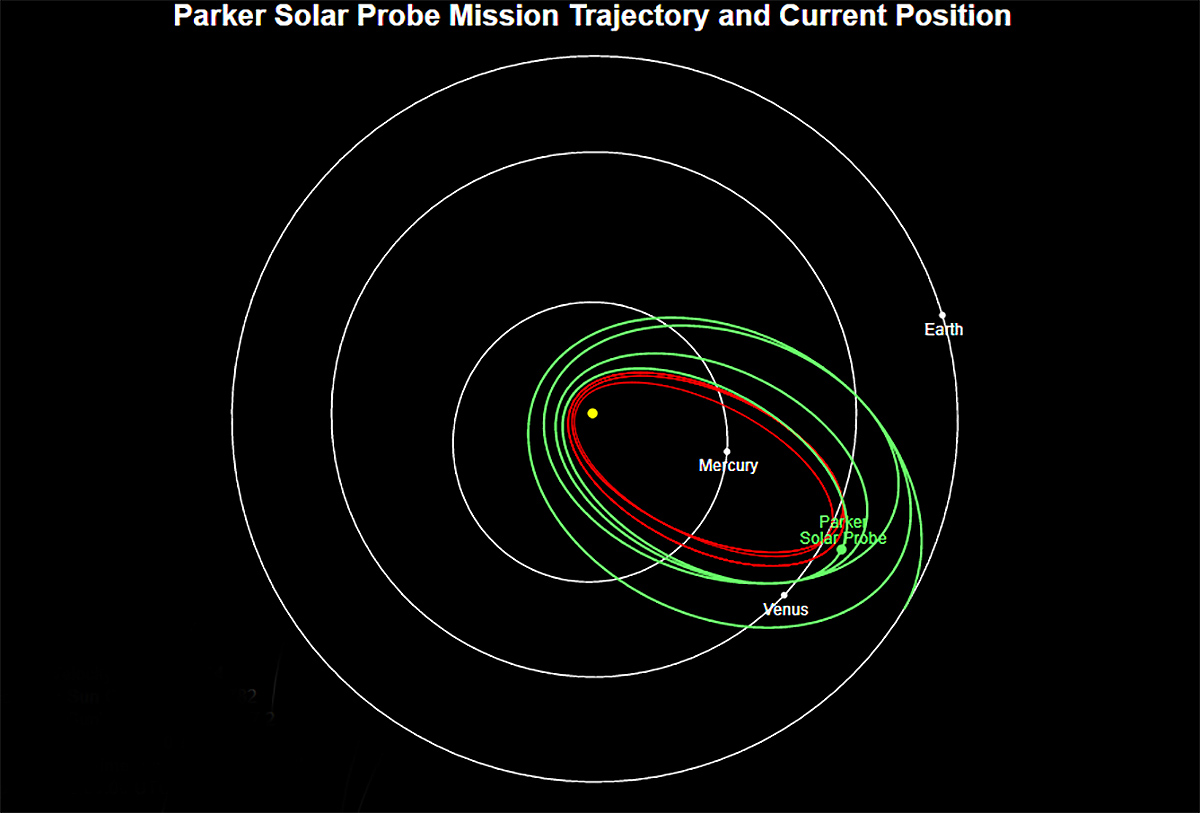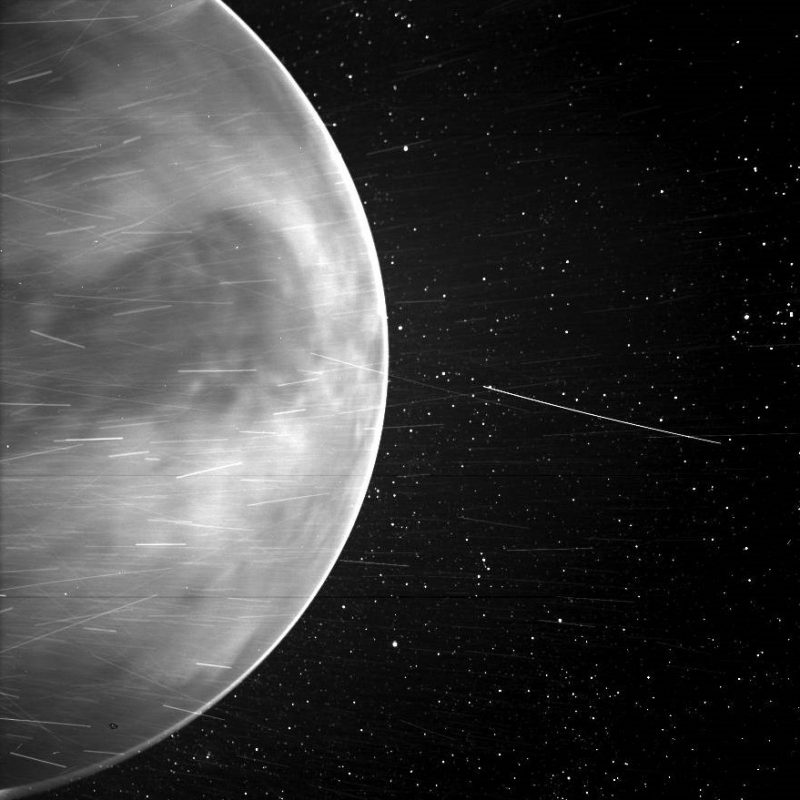
Parker Solar Probe flyby and gravity assist
Parker Solar Probe will perform its next Venus flyby on October 16, 2021. The spacecraft made a short preparatory maneuver on September 29. This maneuver changed the craft’s speed by 9.7 centimeters per second, or less than a third of a mile per hour. That slight change was critical for placing the craft on course for Saturday’s Venus gravity assist, when it will use the planet’s gravity to swing toward its 10th close approach to the sun.
The September 29 maneuver was monitored from the mission operations center at the Johns Hopkins Applied Physics Laboratory (APL) in Laurel, Maryland. APL also designed and built the Parker Solar Probe and said it is:
… healthy and its systems are operating normally. The spacecraft completed its 9th solar encounter on August 15, 2021, at closest approach coming within 6.5 million miles (10.4 million km) of the sun’s surface. The upcoming Venus gravity assist will send the spacecraft even closer to the sun’s blazing surface – about 5.6 million miles (9 million km) – on November 21.
Assisted by two additional Venus flybys, Parker Solar Probe will eventually come within 4 million miles (6.4 million km) of the solar surface in late 2024.
Seven-year mission to touch the sun
In all, the probe has 24 scheduled orbits around the sun during its seven-year mission. During this time, NASA likes to say, the probe will “touch” the sun, that is, fly within the sun’s atmosphere. During each of its sweeps past the sun, NASA said, the Parker Solar Probe will break its own nearness records to the sun.

Bottom line: Parker Solar Probe will perform a close Venus flyby on October 16, 2021. The gravity assist from Venus will send the probe on toward its 10th close approach to the sun on November 21, 2021.
The post Parker Solar Probe has a Venus flyby today first appeared on EarthSky.
from EarthSky https://ift.tt/3aIXnxy

Parker Solar Probe flyby and gravity assist
Parker Solar Probe will perform its next Venus flyby on October 16, 2021. The spacecraft made a short preparatory maneuver on September 29. This maneuver changed the craft’s speed by 9.7 centimeters per second, or less than a third of a mile per hour. That slight change was critical for placing the craft on course for Saturday’s Venus gravity assist, when it will use the planet’s gravity to swing toward its 10th close approach to the sun.
The September 29 maneuver was monitored from the mission operations center at the Johns Hopkins Applied Physics Laboratory (APL) in Laurel, Maryland. APL also designed and built the Parker Solar Probe and said it is:
… healthy and its systems are operating normally. The spacecraft completed its 9th solar encounter on August 15, 2021, at closest approach coming within 6.5 million miles (10.4 million km) of the sun’s surface. The upcoming Venus gravity assist will send the spacecraft even closer to the sun’s blazing surface – about 5.6 million miles (9 million km) – on November 21.
Assisted by two additional Venus flybys, Parker Solar Probe will eventually come within 4 million miles (6.4 million km) of the solar surface in late 2024.
Seven-year mission to touch the sun
In all, the probe has 24 scheduled orbits around the sun during its seven-year mission. During this time, NASA likes to say, the probe will “touch” the sun, that is, fly within the sun’s atmosphere. During each of its sweeps past the sun, NASA said, the Parker Solar Probe will break its own nearness records to the sun.

Bottom line: Parker Solar Probe will perform a close Venus flyby on October 16, 2021. The gravity assist from Venus will send the probe on toward its 10th close approach to the sun on November 21, 2021.
The post Parker Solar Probe has a Venus flyby today first appeared on EarthSky.
from EarthSky https://ift.tt/3aIXnxy

Aucun commentaire:
Enregistrer un commentaire